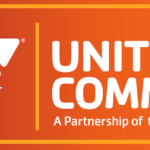Living with an intellectual disability can be challenging not only for individuals but also for their families. The daily routines, therapy schedules, and social integration efforts can be overwhelming without a network of support. This is where support groups for intellectual disability play a crucial role. These groups provide a safe environment where participants and their families can share experiences, gain knowledge, and feel a sense of belonging within a community.
Support groups are more than just meetings—they are spaces where people can exchange practical advice, celebrate successes, and find emotional encouragement. For families navigating the complex systems of care, connecting with others who understand their challenges can be invaluable. In New York City, a wide variety of support groups cater to different needs, and local organizations like Gateway Counseling Center (GCC) have emerged as leaders in providing personalized, effective group programs.
Types of Support Groups in NYC
New York City offers a diverse range of support groups for intellectual disability, reflecting the varied needs of participants and families. Broadly, these groups can be categorized into in-person and online formats.
In-Person Groups provide opportunities for face-to-face interaction, social engagement, and hands-on activities. These meetings often take place in community centers, local agencies, or therapy clinics. The personal connection in in-person groups can foster trust and long-term relationships between participants and families.
Online Groups are increasingly popular, especially for those who face mobility challenges, transportation barriers, or prefer a flexible schedule. Virtual platforms allow participants to join from home while still accessing educational workshops, discussions, and peer support.
Support groups can also be thematic, addressing the unique needs of different populations:
- Family-Focused Groups: These bring together parents, siblings, and caregivers to share experiences, coping strategies, and resources.
- Adult Groups: Designed for adults with intellectual disabilities, these programs focus on social skills, vocational guidance, and community engagement.
- Teen and Youth Groups: Support for younger participants often emphasizes social development, recreational activities, and preparing for adulthood.
By offering both in-person and virtual formats, as well as age- and role-specific groups, NYC ensures that everyone can find a community that meets their needs.
Why Gateway Counseling Center Stands Out
Among the many options in NYC, Gateway Counseling Center (GCC) stands out for its comprehensive and personalized approach to support groups. GCC has developed programs that not only provide guidance and resources but also actively engage participants in meaningful activities.
Some examples of GCC’s support group offerings include:
- Weekly Family Meetings: Families come together to discuss challenges, share solutions, and learn from expert facilitators. These sessions provide practical strategies for daily caregiving and emotional resilience.
- Workshops and Educational Sessions: GCC organizes workshops on topics such as behavior management, communication strategies, and navigating services. These workshops equip families and participants with the tools they need to thrive.
- Participant-Focused Social Groups: Adults and teenagers engage in structured social activities, skill-building exercises, and peer mentoring. These programs foster independence, confidence, and social integration.
What sets GCC apart is its personalized approach. Each group is designed to meet the specific needs of its members, with professional staff guiding discussions and activities. Families are actively involved, creating a collaborative environment where everyone feels valued and supported.
How to Choose the Right Support Group
Finding the right support group can make a significant difference in the experience and outcomes for both participants and their families. Here are some key considerations:
- Location: Choose a group that is easily accessible, considering transportation options and convenience for regular attendance.
- Schedule: Determine whether the group meets at times that fit your family’s routine. Consistency is important for building relationships and maintaining engagement.
- Specialization: Some groups focus on specific needs or age ranges. Look for a group that aligns with your goals and the participant’s needs.
For new participants, it is helpful to attend a trial session or observe a meeting before committing. Ask questions about the structure, content, and support offered to ensure that the group is a good fit.
Benefits of Joining Support Groups
Participation in support groups for intellectual disability offers multiple benefits:
- Emotional Support for Families: Sharing experiences with others in similar situations can reduce stress and feelings of isolation.
- Opportunity to Share Experiences and Resources: Families can exchange practical advice, learn about available services, and discover new strategies for care.
- Social Integration for Participants: Support groups provide a structured environment for individuals to build social skills, develop friendships, and engage with the community.
By fostering connection and understanding, these groups enhance both personal growth and family wellbeing. The sense of community created in these programs can be empowering for participants and reassuring for caregivers.
Conclusion
Support groups play a vital role in improving the quality of life for people with intellectual disabilities and their families. In NYC, organizations like Gateway Counseling Center lead the way by offering tailored programs, expert guidance, and active family involvement. By connecting participants and caregivers to a network of peers and professionals, GCC ensures that every individual has the opportunity to thrive.
Whether you are seeking advice, emotional support, or social engagement, Gateway Counseling Center’s support groups for intellectual disability provide a reliable and compassionate resource for families navigating the challenges and joys of life with intellectual disabilities.







